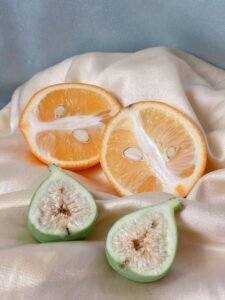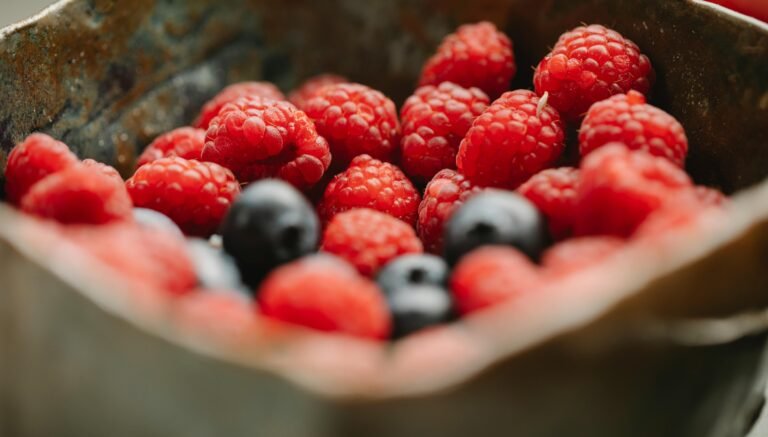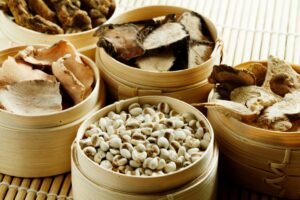Well health organic .com: vegetarian protein sources
Introduction to Vegetarian Protein Sources
In a world where dietary choices are expanding more individuals are turning to vegetarianism for various reasons be it ethical environmental or healthrelated. However one common concern among those considering or already practicing a vegetarian lifestyle is ensuring an adequate intake of protein. Contrary to popular belief ample protein sources abound in the plant kingdom offering a diverse array of options that not only meet but exceed nutritional needs.
Importance of Protein in a Vegetarian Diet
Protein is an essential macronutrient vital for numerous bodily functions including muscle repair and growth immune function and hormone regulation. While animal products are traditionally associated with high protein content plantbased alternatives can provide all the essential amino acids necessary for optimal health. Incorporating a variety of vegetarian protein sources into one diet ensures a wellrounded nutritional profile.
Legumes: Nature Protein Powerhouse
Among the most celebrated vegetarian protein sources are legumes which include beans lentils and chickpeas. Not only are they rich in protein but they also boast an impressive array of vitamins minerals and dietary fiber. Beans such as black beans kidney beans and pinto beans are versatile and can be incorporated into soups salads and main dishes. Lentils available in various colors like green red and black are quickcooking and make for hearty additions to stews and curries. Chickpeas commonly used in Mediterranean and Middle Eastern cuisines can be roasted for a crunchy snack or pureed into creamy hummus.
Nuts and Seeds: NutrientDense Protein Options
Nuts and seeds offer not only protein but also healthy fats vitamins and minerals making them a nutritious addition to any diet. Almonds for instance are packed with protein fiber and vitamin E making them an excellent onthego snack or crunchy topping for salads and oatmeal. Chia seeds are tiny nutritional powerhouses boasting high levels of protein omega3 fatty acids and antioxidants. Sprinkle them over yogurt or blend them into smoothies for a nutritional boost. Pumpkin seeds also known as pepitas are rich in protein iron and magnesium making them a perfect addition to trail mix or homemade granola.
Whole Grains: ProteinPacked Staples
Whole grains are not only a significant source of carbohydrates but also provide a considerable amount of protein. Quinoa often referred to as a “complete protein” contains all nine essential amino acids making it an ideal choice for vegetarians. Brown rice another staple in many cuisines offers a modest amount of protein along with fiber and essential nutrients. Oats a breakfast favorite are not only hearthealthy but also provide a decent amount of protein especially when paired with nuts or seeds.
Dairy and PlantBased Alternatives
Dairy products and their plantbased counterparts are valuable sources of protein particularly for lactovegetarians and vegans. Greek yogurt with its thick and creamy texture is packed with protein and probiotics promoting gut health. Tofu made from soybeans is a versatile ingredient that can be used in stirfries soups and smoothies providing a substantial amount of protein per serving. Tempeh a fermented soy product offers a unique texture and flavor profile along with a significant protein punch.
Incorporating Vegetarian Protein into Meals
Incorporating vegetarian protein sources into meals doesn’t have to be complicated. Simple swaps such as using lentils instead of ground beef in tacos or adding tofu to a vegetable stirfry can significantly increase the protein content of a dish. Experimenting with different flavors and cuisines can also make vegetarian meals more exciting and satisfying.
Benefits of Choosing Vegetarian Protein Sources
Opting for vegetarian protein sources offers numerous benefits including better heart health improved digestion and reduced environmental impact. Plantbased proteins are often lower in saturated fat and cholesterol than their animal counterparts promoting overall wellness. Additionally plantbased diets have been linked to lower rates of chronic diseases such as diabetes cancer and obesity.
Common Myths About Vegetarian Protein
Despite the abundance of vegetarian protein sources several myths persist surrounding their adequacy and nutritional value. One common misconception is that plantbased proteins are incomplete lacking certain essential amino acids. However by consuming a varied diet that includes a combination of grains legumes nuts and seeds individuals can easily meet their protein needs. Another myth is that vegetarian protein is less bioavailable than animal protein yet research suggests that plantbased proteins are just as effective at supporting muscle growth and repair.
Tips for Maximizing Protein Absorption
To maximize protein absorption from vegetarian sources it essential to focus on food pairing and preparation methods. Pairing complementary proteins such as beans and rice or hummus and wholegrain pita ensures a complete amino acid profile. Additionally incorporating sources of vitamin C such as citrus fruits or bell peppers can enhance iron absorption from plantbased foods. Cooking methods such as soaking sprouting and fermenting can also improve the digestibility and bioavailability of plant proteins.
Recipes Using Vegetarian Protein Sources
Experimenting with recipes is a fantastic way to incorporate vegetarian protein sources into your diet. From lentil soups and quinoa salads to tofu stirfries and chickpea curries the possibilities are endless. Get creative in the kitchen and explore new flavors and ingredients to keep your meals exciting and satisfying.
Understanding Protein Complementation
Protein complementation is the practice of combining different plantbased proteins to ensure a balanced amino acid profile. By pairing foods that are deficient in certain amino acids with those that are rich in them individuals can create complete protein sources. For example combining beans with rice or tofu with quinoa provides all the essential amino acids necessary for optimal health.
Sustainable Benefits of Vegetarian Protein
In addition to personal health benefits choosing vegetarian protein sources can also have positive environmental implications. Plantbased diets require fewer natural resources such as land water and energy compared to animalbased diets. By reducing reliance on animal agriculture individuals can help mitigate deforestation water pollution and greenhouse gas emissions contributing to a more sustainable future for the planet.
Potential Drawbacks and How to Overcome Them
While vegetarian protein sources offer numerous benefits there are some potential drawbacks to consider. Plantbased proteins may be lower in certain nutrients such as vitamin B12 iron and omega3 fatty acids which are primarily found in animal products. However with careful planning and supplementation individuals can easily meet their nutritional needs on a vegetarian diet. It essential to prioritize variety and moderation to ensure a wellbalanced and nutrientrich eating pattern.
Final Word: Embracing a ProteinRich Vegetarian Lifestyle
In vegetarianism offers a wealth of protein sources that are not only nutritious but also delicious and sustainable. By incorporating legumes nuts seeds whole grains and plantbased alternatives into your diet you can enjoy all the benefits of a proteinrich lifestyle while supporting your health and the planet. With a little creativity and experimentation you can discover a world of flavorful and satisfying vegetarian meals that nourish your body and soul.
FAQs
Can I get enough protein on a vegetarian diet?
Absolutely! By incorporating a variety of plantbased protein sources into your meals you can easily meet your daily protein needs.
Are plantbased proteins as effective as animal proteins for muscle growth?
Yes research suggests that plantbased proteins can support muscle growth and repair just as effectively as animal proteins when consumed in adequate amounts.
What are some good sources of vegetarian protein for athletes?
Athletes can benefit from incorporating proteinrich foods such as lentils quinoa tofu and tempeh into their diets to support performance and recovery.
-
How can I ensure I’m getting enough iron on a vegetarian diet?
Consuming ironrich plant foods such as lentils spinach tofu and pumpkin seeds along with vitamin Crich foods to enhance absorption can help meet your iron needs.
Are there any potential risks associated with a vegetarian diet?
While a wellplanned vegetarian diet can be highly nutritious individuals should pay attention to their intake of certain nutrients like vitamin B12 iron and omega3 fatty acids and consider supplementation if needed.































+ There are no comments
Add yours